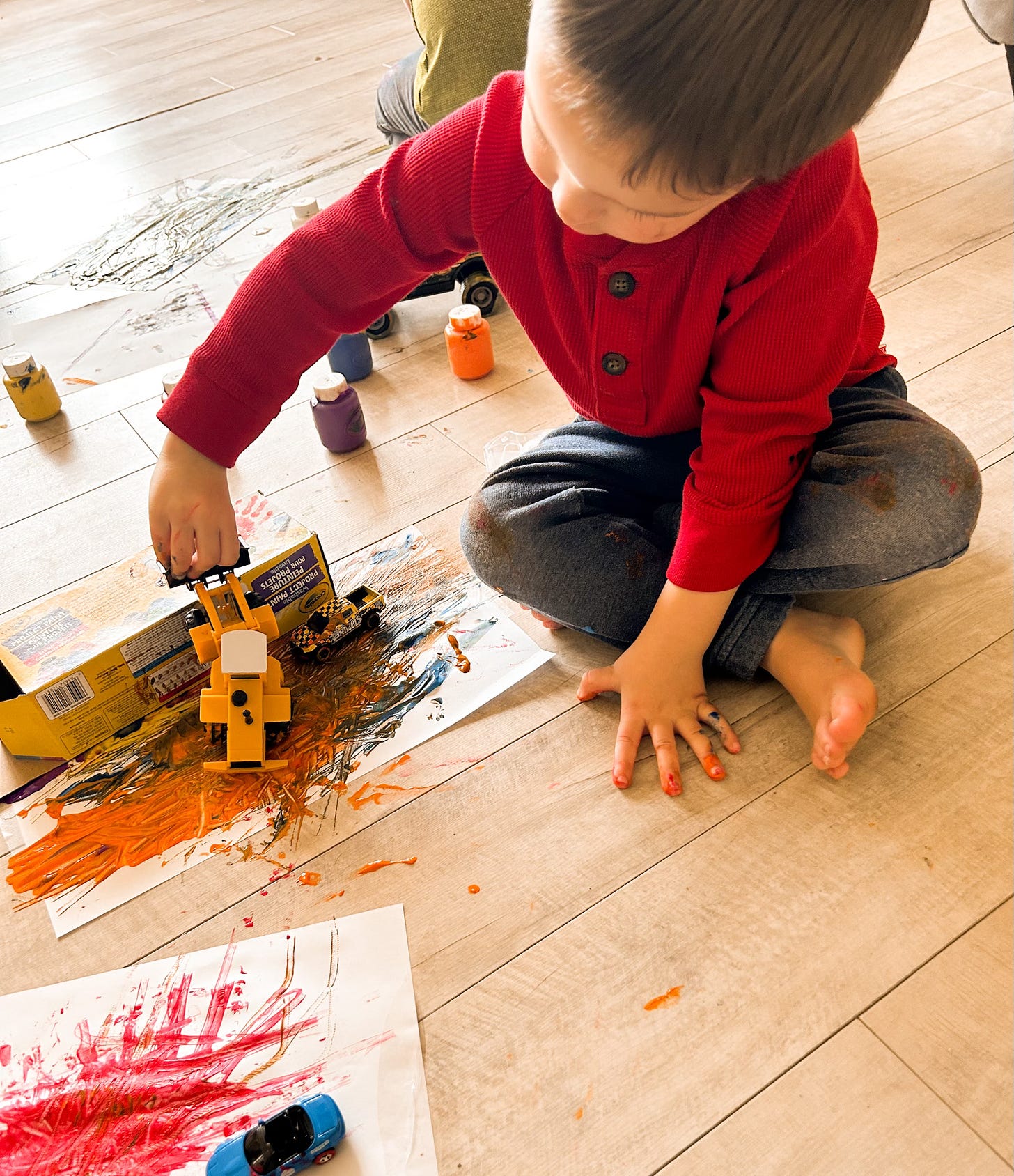Courage For Those With Unfatherly Fathers
When you only heard of not holding grudges rather than knowing your Heavenly Father
Growing up, when I brought my tears about the cruel words and actions of my father against me to fellow believers, I heard about how Christians must forgive. I never heard about the fatherhood of God. Over time, I developed a picture of God that looked like a combination of my earthly father and a strict teacher: A cold and distant ruler who heard my cries and replied with commands such as, “Forgive, for you have done worse things against Me,” “Do not be imprisoned by bitterness,” and “Honor thy parents.”
As I obsessively read my Bible each day (to keep God pleased with me), I looked up at the black sky outside my window wondering if God were no more than one of those stars that glared back at me: A distant, regal king I could never truly know, who I hoped somehow paid attention to me, and who called me to endure the harsh words of my father because I owed him.
We learn what God is like from those who claim to be believers and from those who have power over us, even more so from those who hold the earthly position that God stands in.
Yet God is first our Father and earthly fathers are meant to mirror him—not the other way around. God is not called our Father because we first had fathers, but because he is our Father. He is our Father not just as the One who created us but also as the One who tends to our needs, tenderly disciplines us when in need of correction, and protects us from the enemy who seeks to destroy us. We call our biological fathers “father” because they mirror our Heavenly Father and are called to be like him.
Bavinck explained that in ancient Rome, every family had its privileges and rights and especially its religious practices. A child could be placed in another family only by a formal transaction in which the biological father essentially sold his child to another father who desired to accept that child as his own. “Only in this way could a child be liberated from his duties in the one family and subjected to those in the other.”1 God our Father bought us to be his own by sending his true Son to pay for us by his own death. Now we belong to God as his beloved children and receive his love, gifts, and the inheritance of eternal life. This is the sacrificial love with which our Father loves us.
As our Father, he hates violence done against his children. Abuse counselor Darby Strickland writes, “People are made in God’s image, and being brutal to them desecrates that image (see Gen. 9:6)—and so God does not hide his disdain for violence.”2 He is compassionate and just. He demands that the violent, wicked, and deceitful change their ways or be separated from him, yet his beloved, who have repented by his grace, “can enter [his] house”, “worship at [his] Temple”, and are led “in the right path” (Ps. 5:4–8).
In that same Psalm, David sang that our Father “abhors the bloodthirsty and deceitful man” (v. 6). God’s anger not only boils against physical violence but also liars, the arrogant, and any who do what is wicked—in other words, anything that disobeys his law. Lies, manipulation, unwarranted condemnation, and misuse of power all mock the image of God he has placed in each of us—and that, God hates.
Our Father sees the violence done against us, no matter what that violence may be, and he will be your Savior. He sees the penny-bird fall to the ground; how much more does he care and watch out for us, those who have his breath, image, and Holy Spirit within us (Matt. 10:29–31)? God detests the violence against you and will fight for you. He will see that justice is done—whether it be today, tomorrow, or when he returns to draw you home. None who insult the image of God and assault his children will remain upright before him.
This is our Heavenly Father. Though our earthly dads were meant to reflect him, he in no way mirrors them. Take courage, and run with abandon to the open arms of your Father. He is not like the great mighty stars piercing the blackness of the sky, distant and making you feel insignificant and small. He is the father running toward the prodigal and commanding feasts and celebration over him. He is Aslan, though fierce yet tender so as to not leave a scratch on a small child but bends low for her to ride on his back and removes the painful dragon scales that we cannot. He loves you and calls you dearly beloved.
Have you read my latest book? A Mother Held: Essays on Anxiety and Motherhood. I wrote this book for moms, particularly moms in the early years of motherhood—but I hope all parents will be reminded by reading my story that God carries each of us through both the greatest joys and deepest sorrows of motherhood.
Herman Bavinck, The Wonderful Works of God: Instruction in the Christian Religion According to the Reformed Confession, trans. Henry Zylstra (Glenside, Pennsylvania: Westminster Seminary Press, 2019), 446.
Darby A. Strickland, Is It Abuse? A Biblical Guide to Identifying Domestic Abuse and Helping Victims (Phillipsburg, New Jersey: P&R Publishing, 2020), 41.







Oh, friend. This was both heartbreaking and beautiful. Thank you for sharing this Truth. 🩵